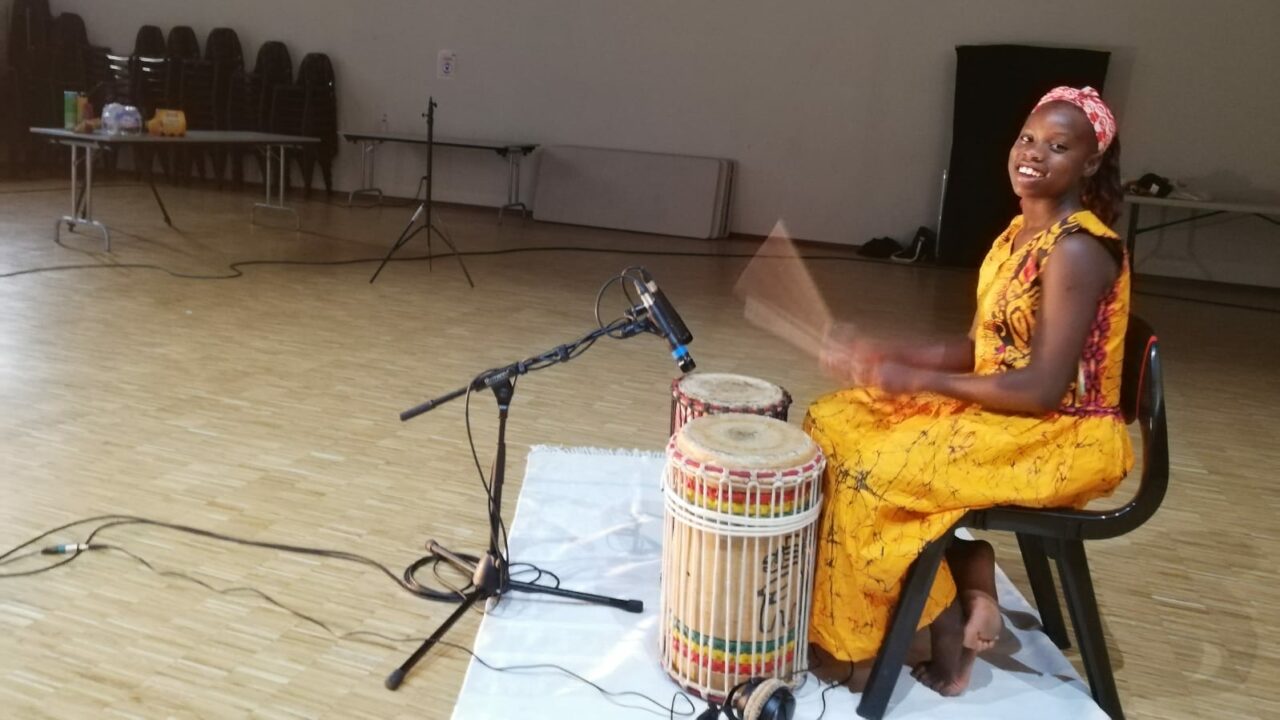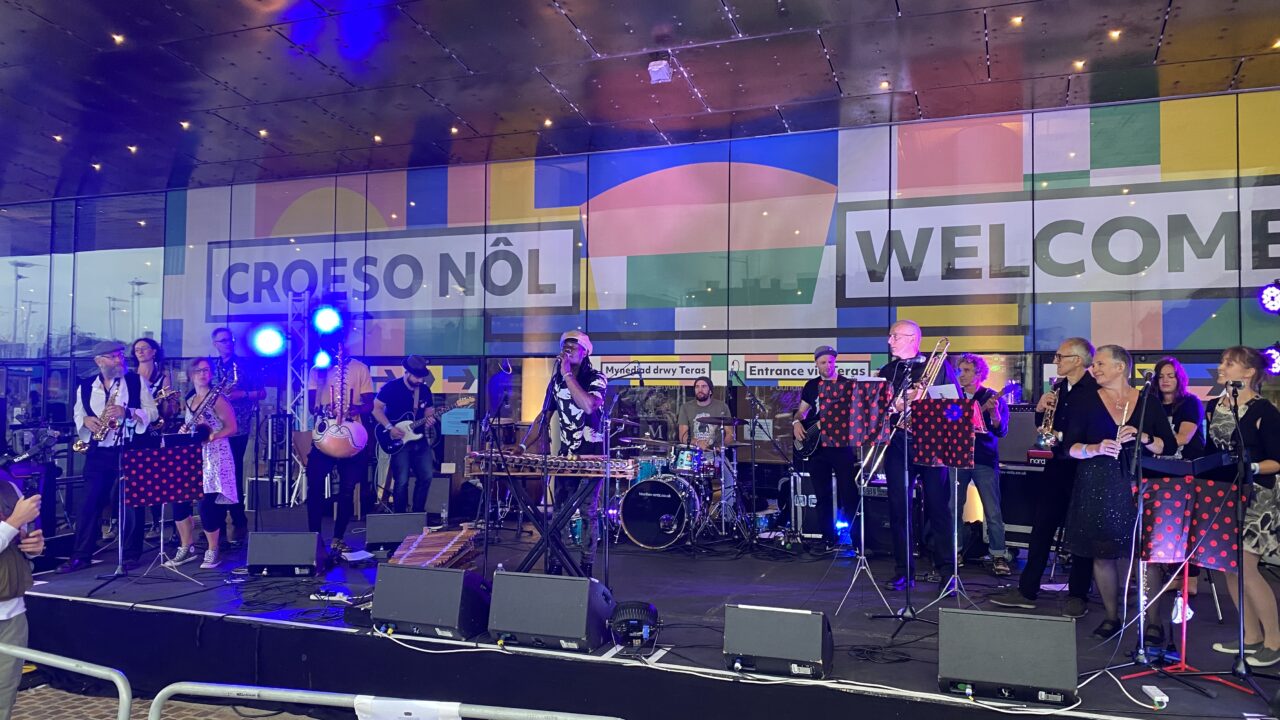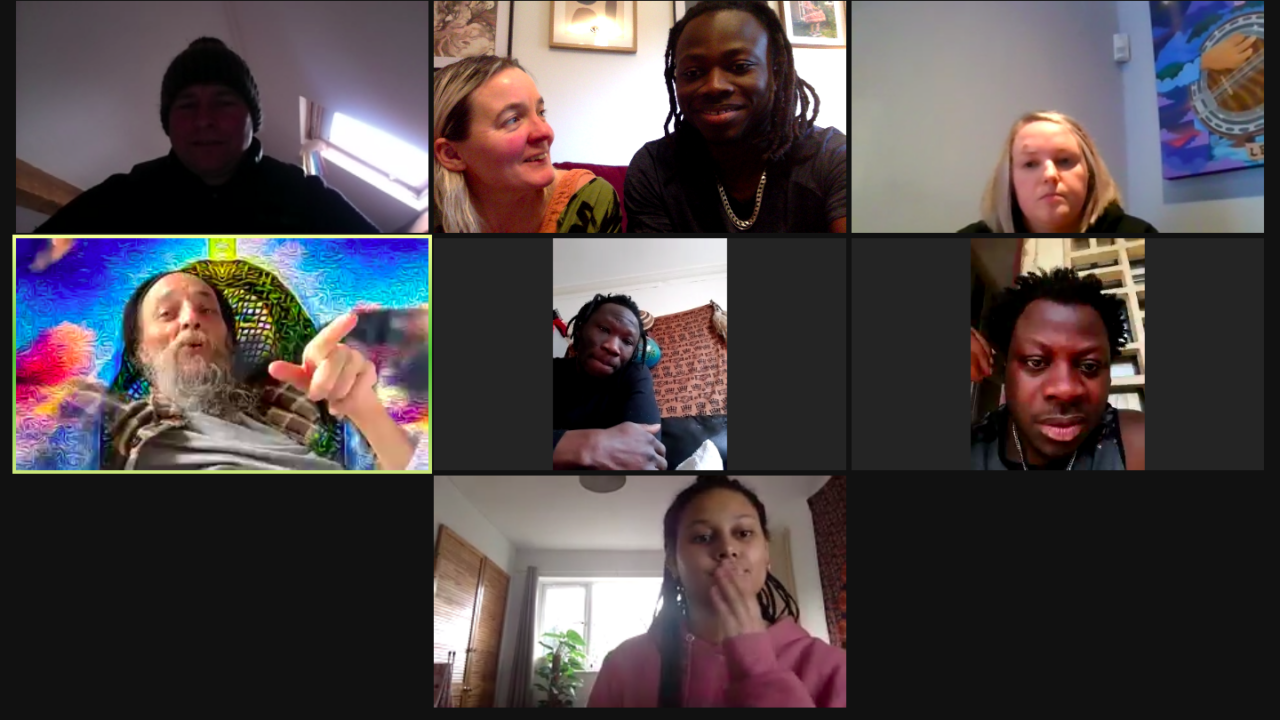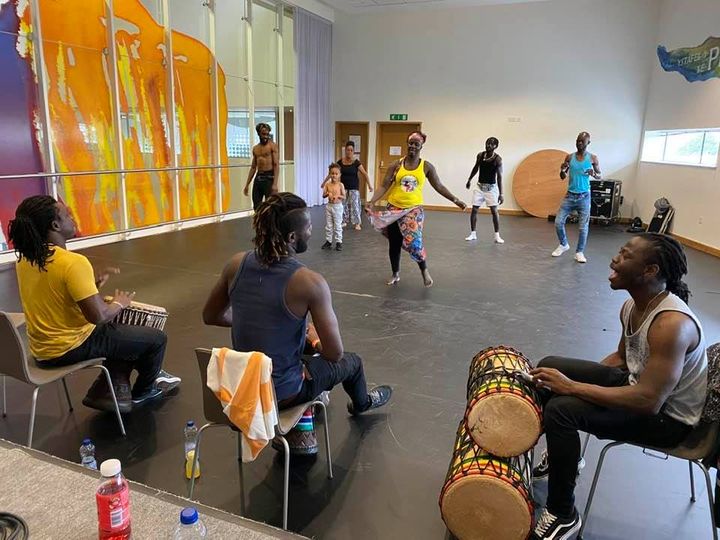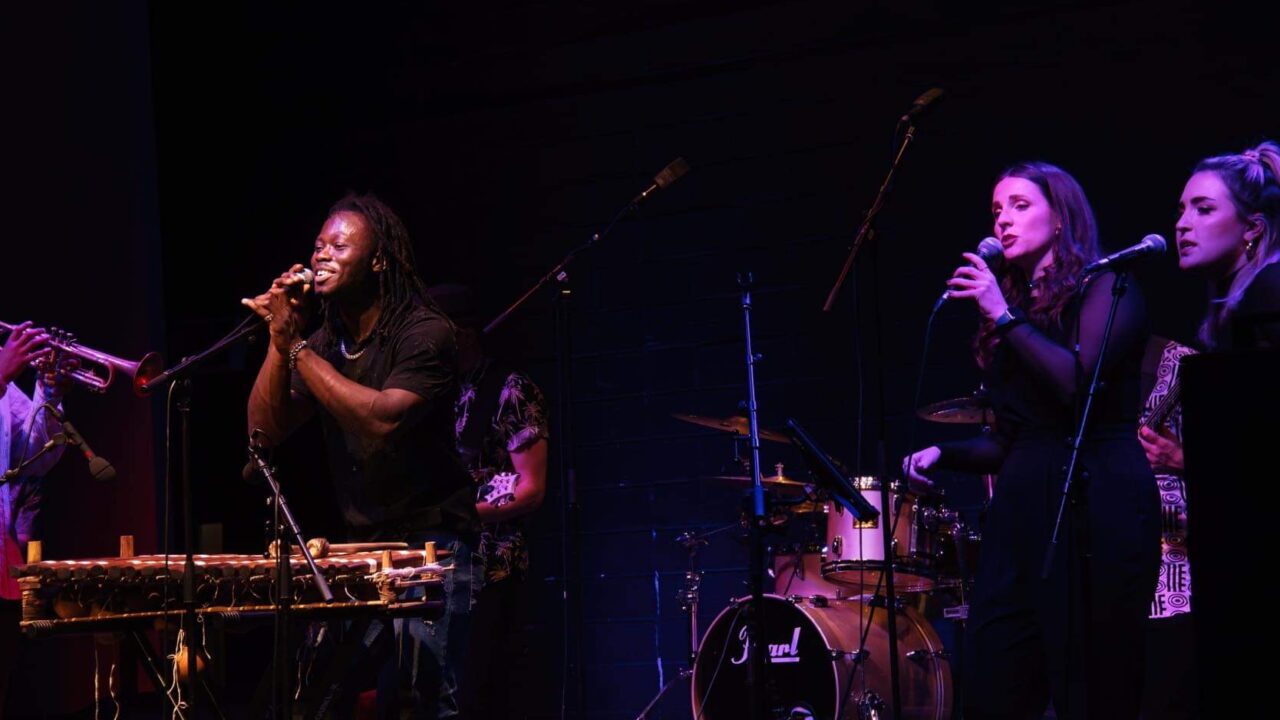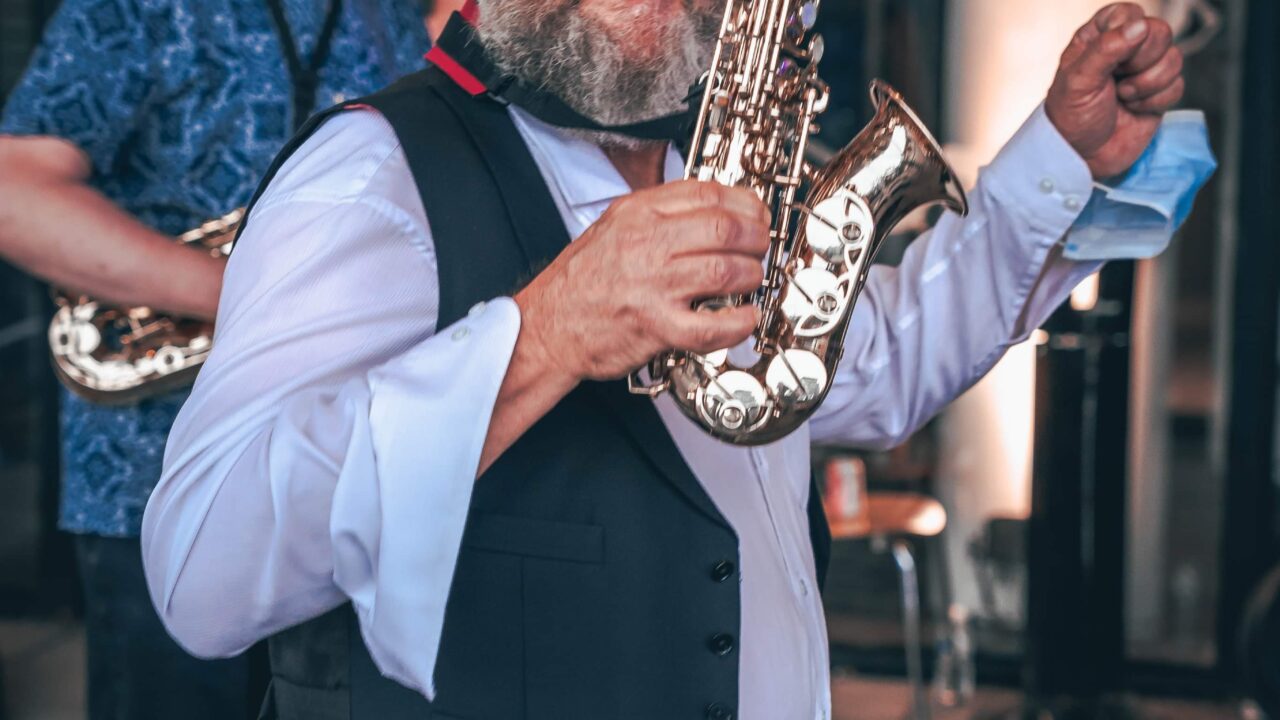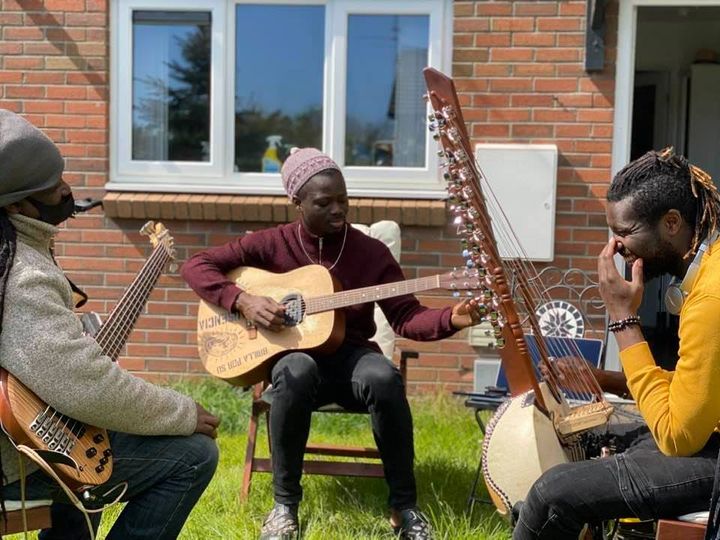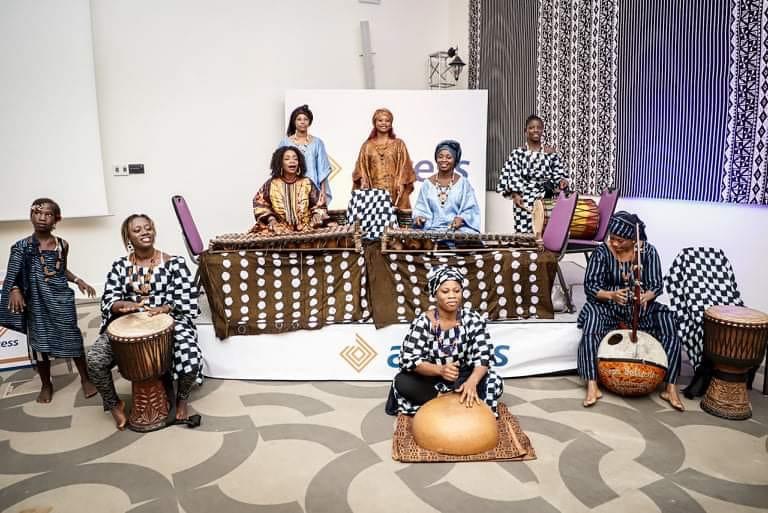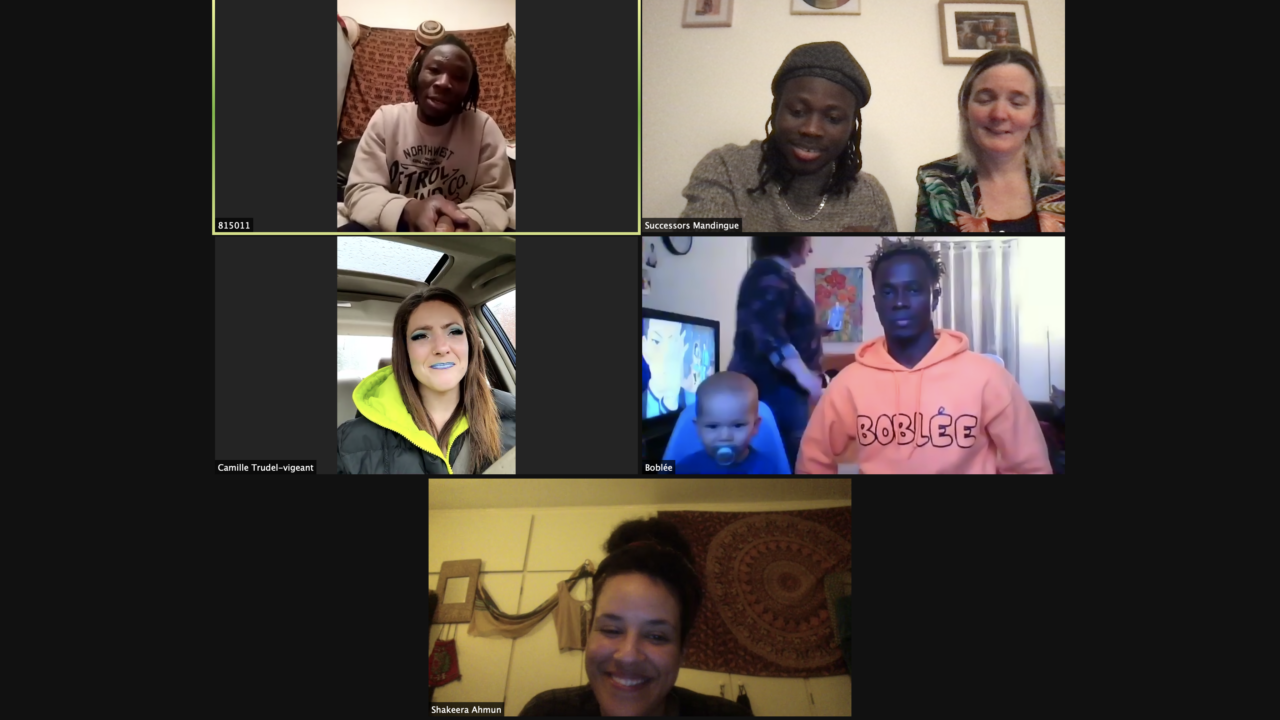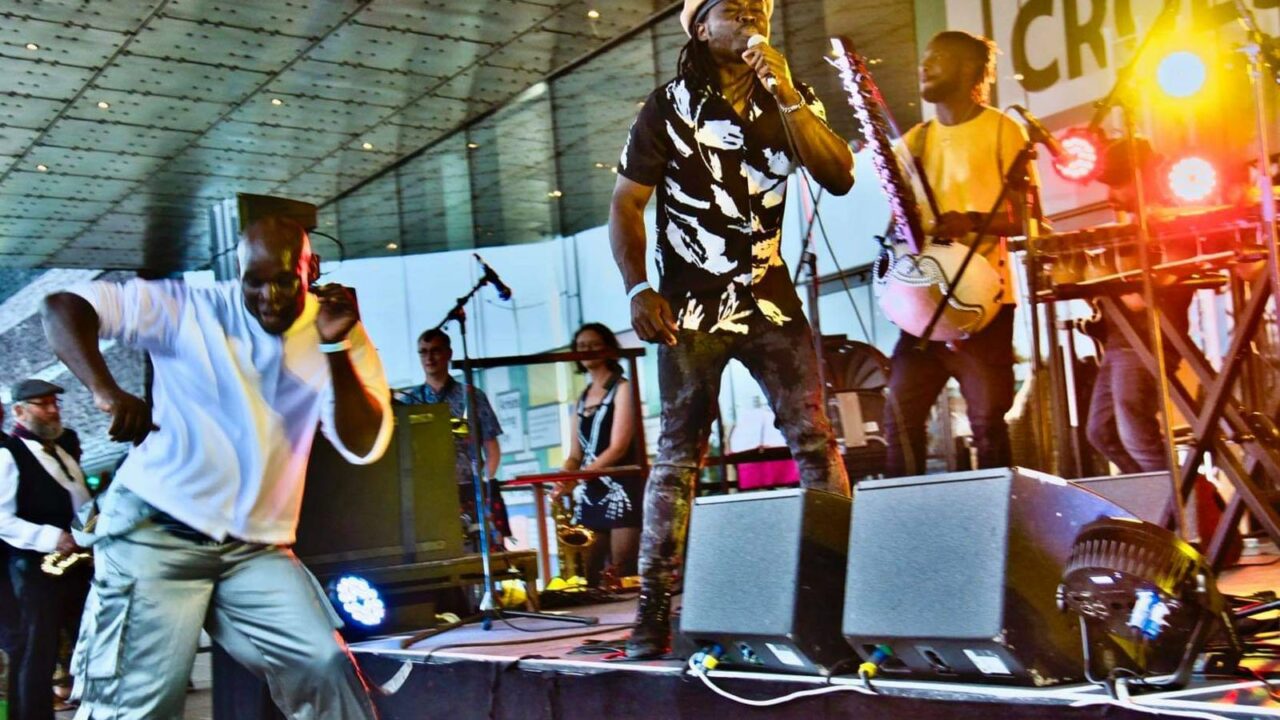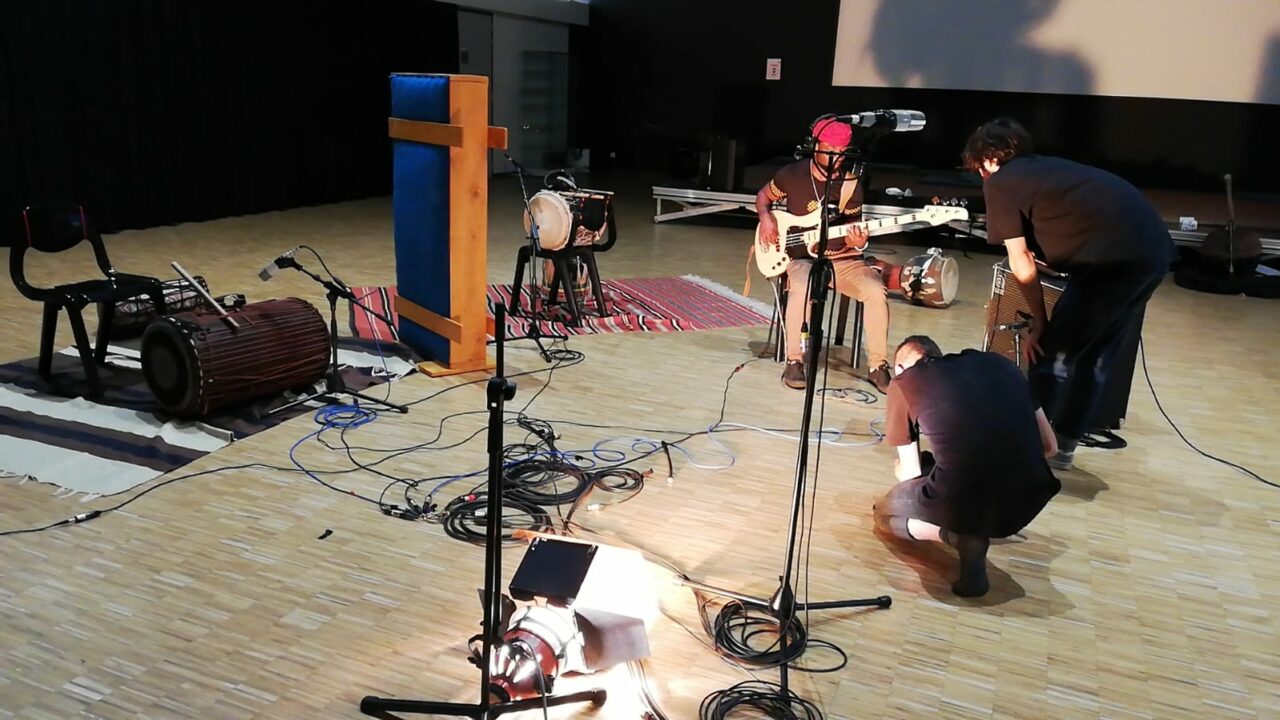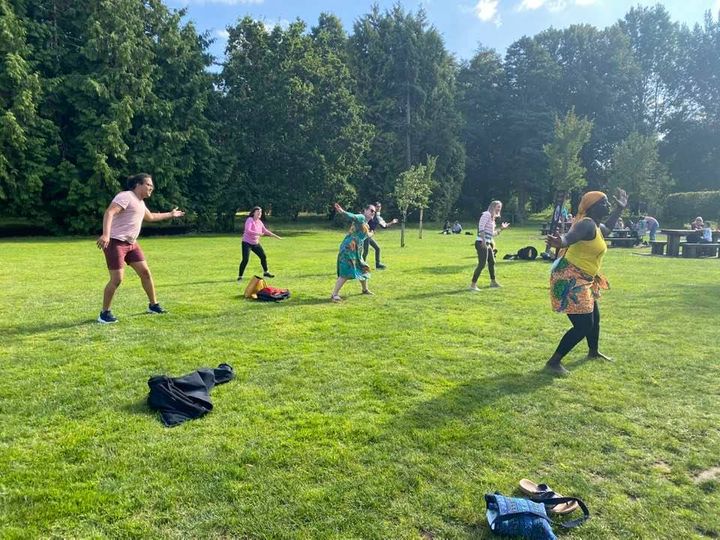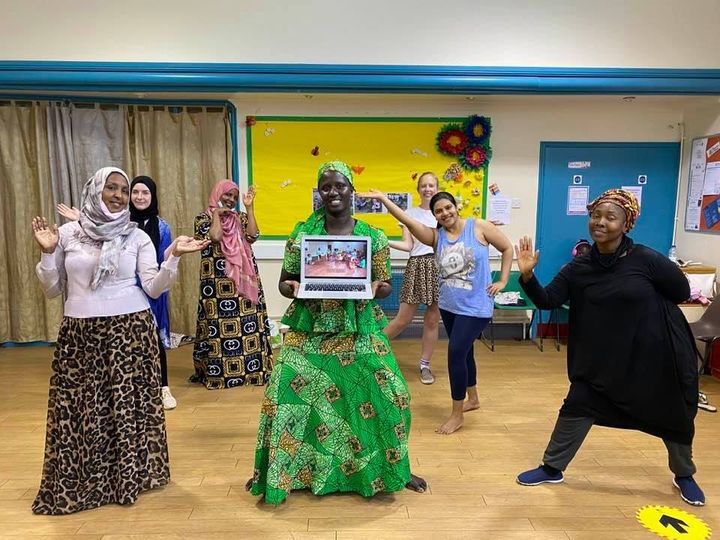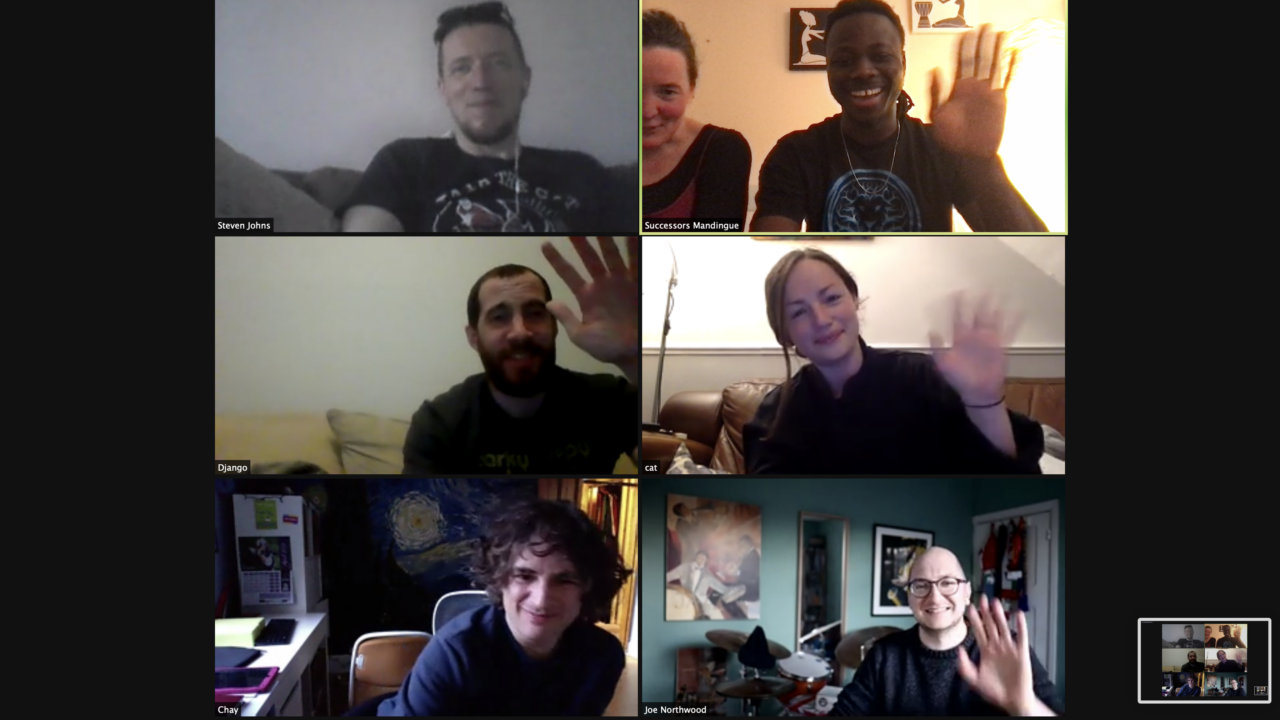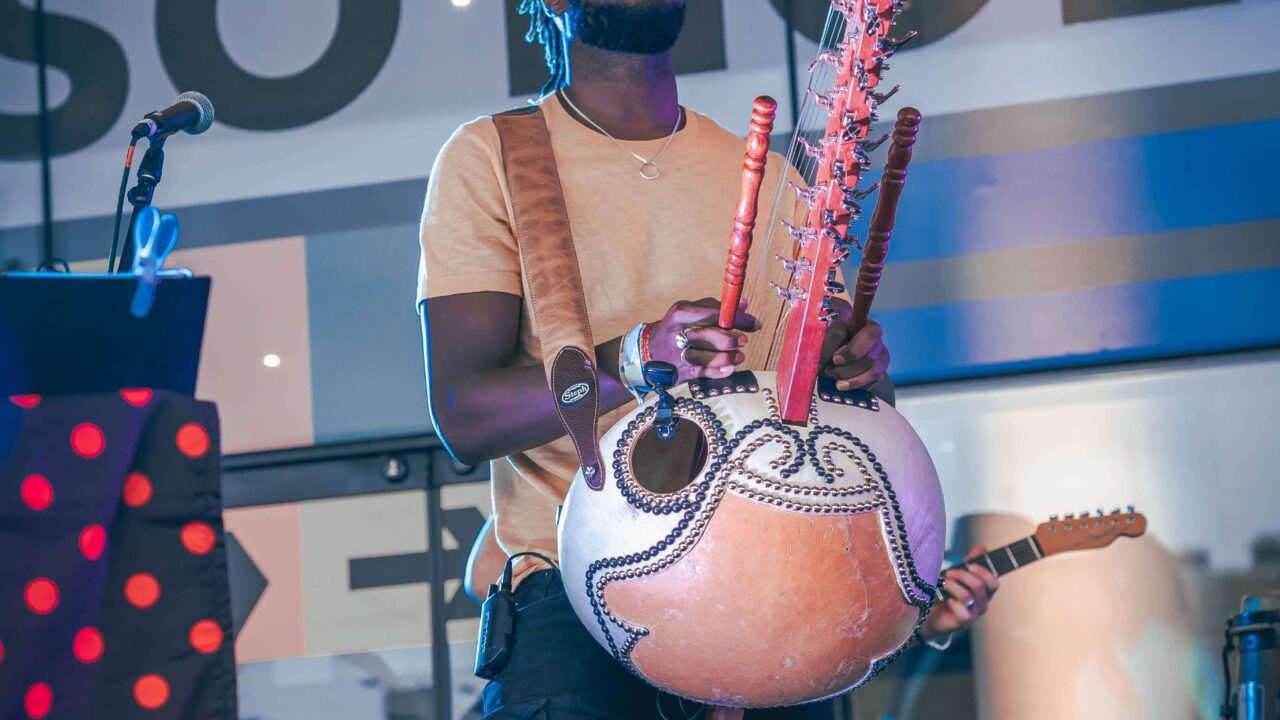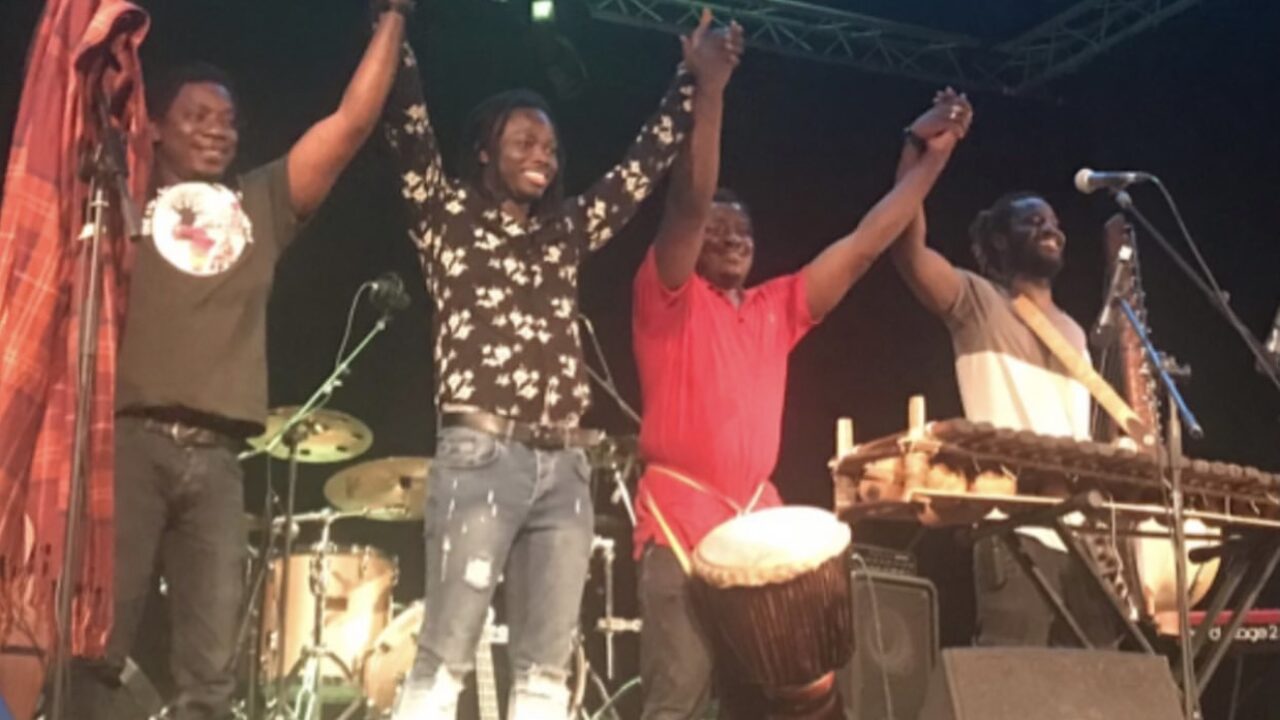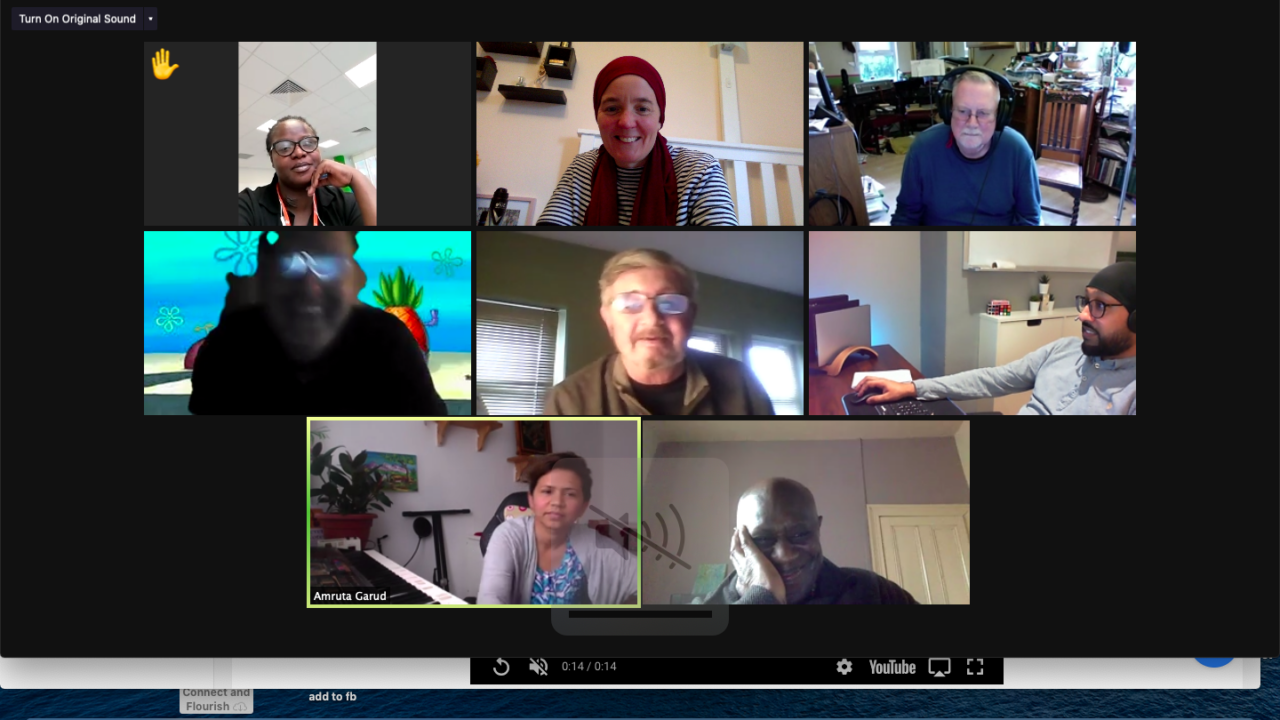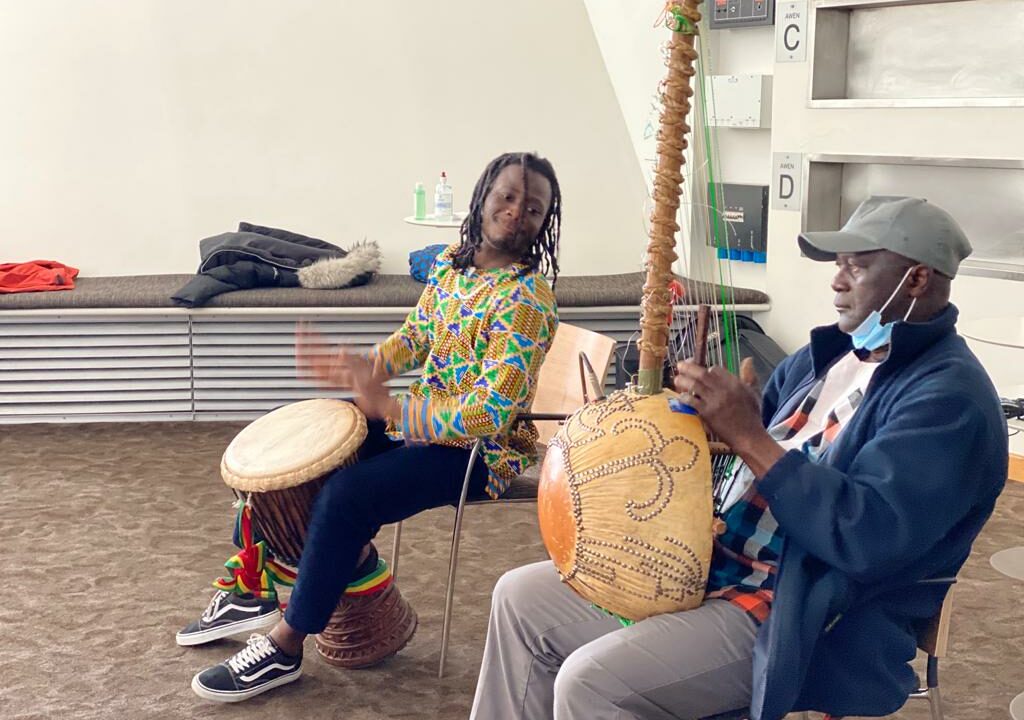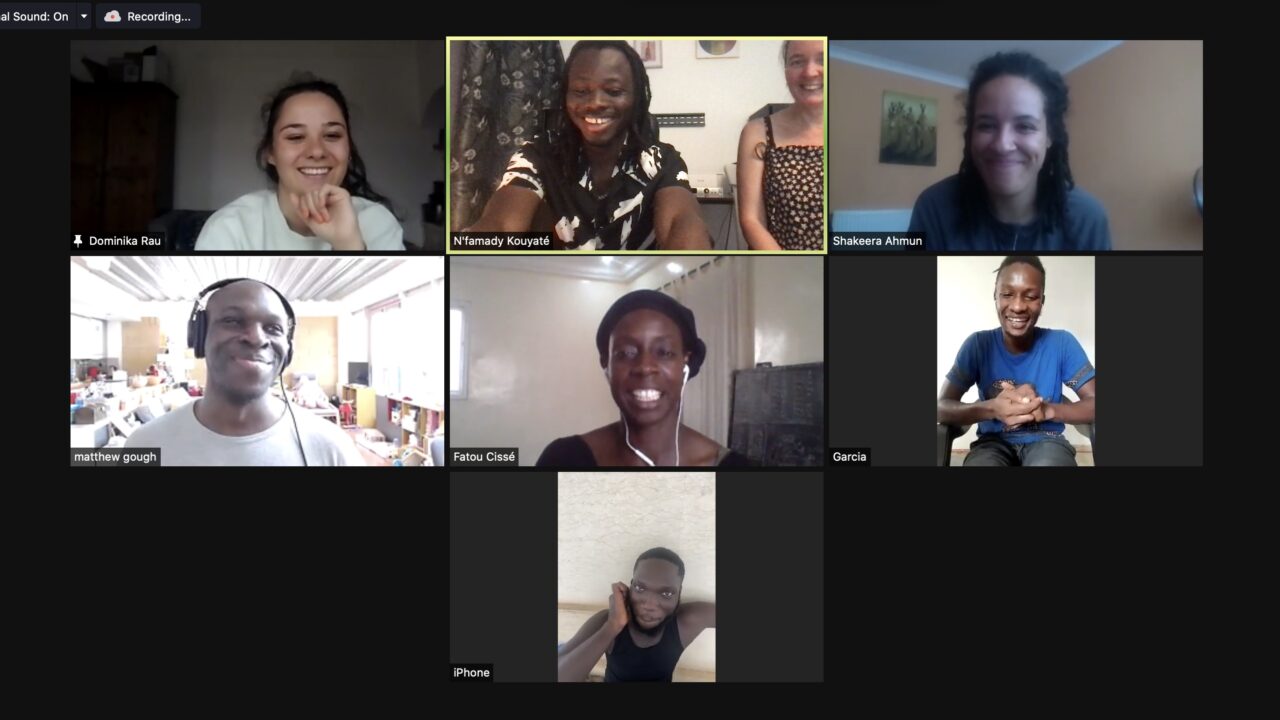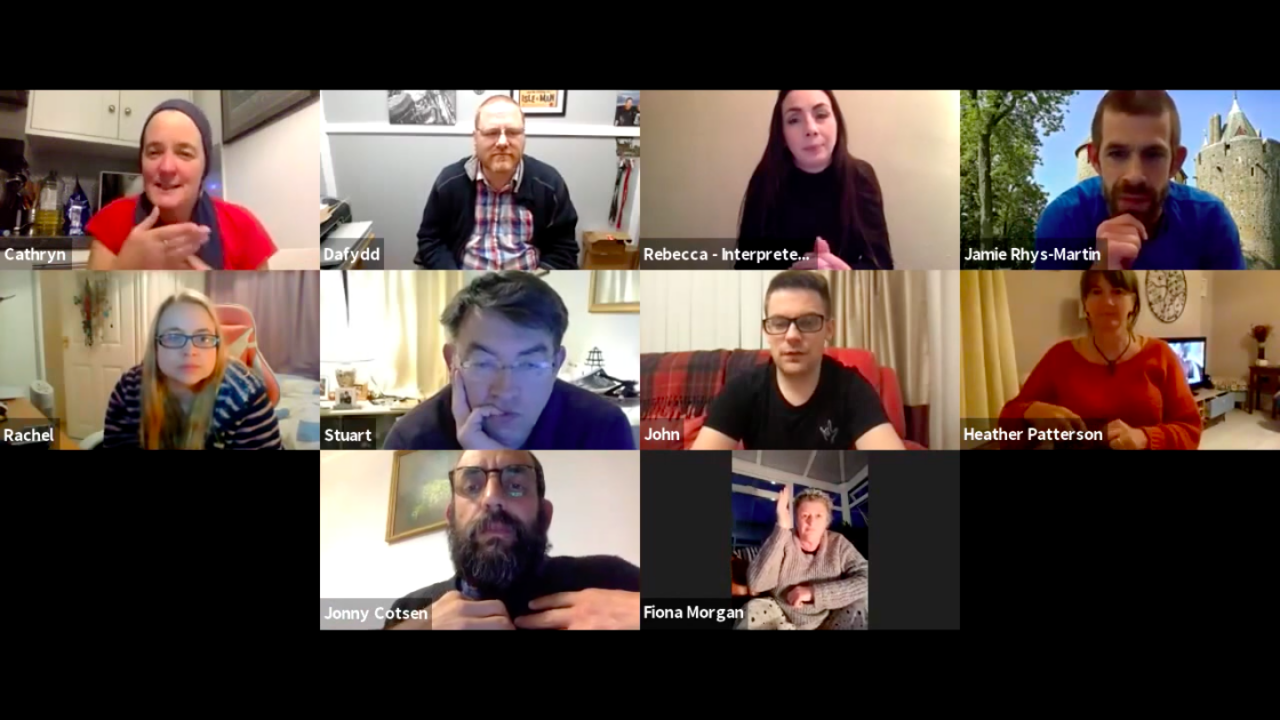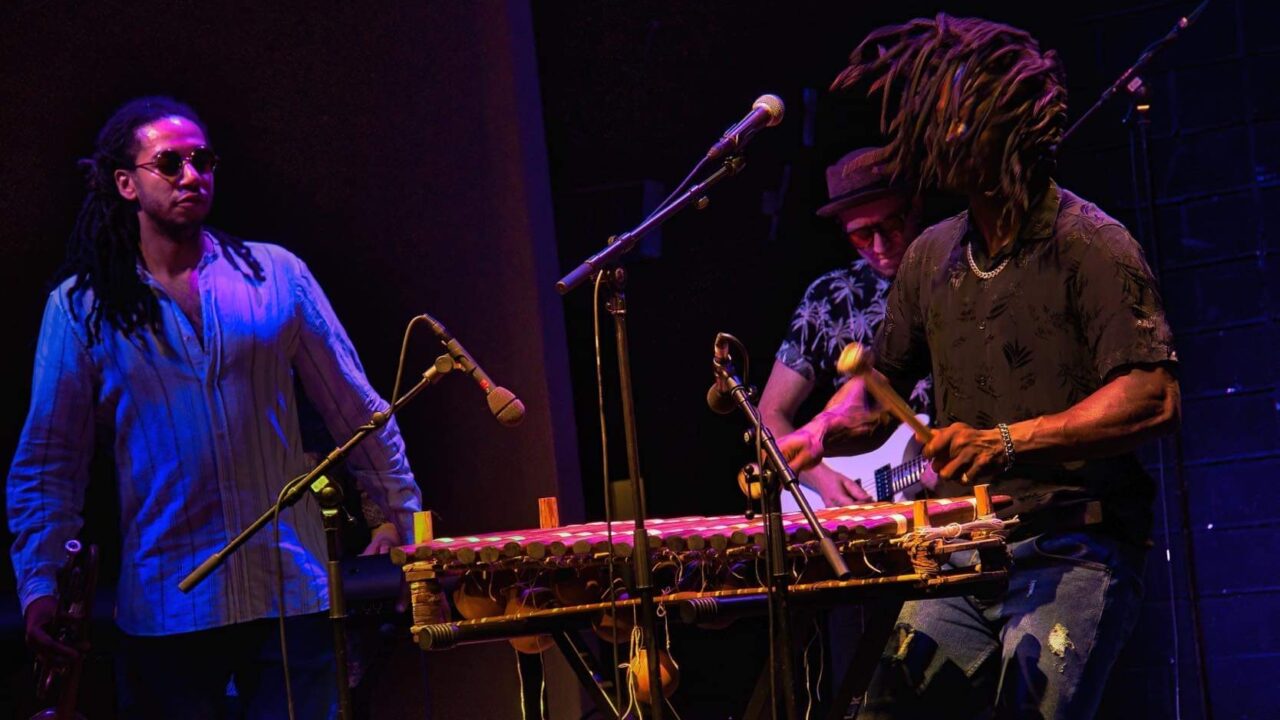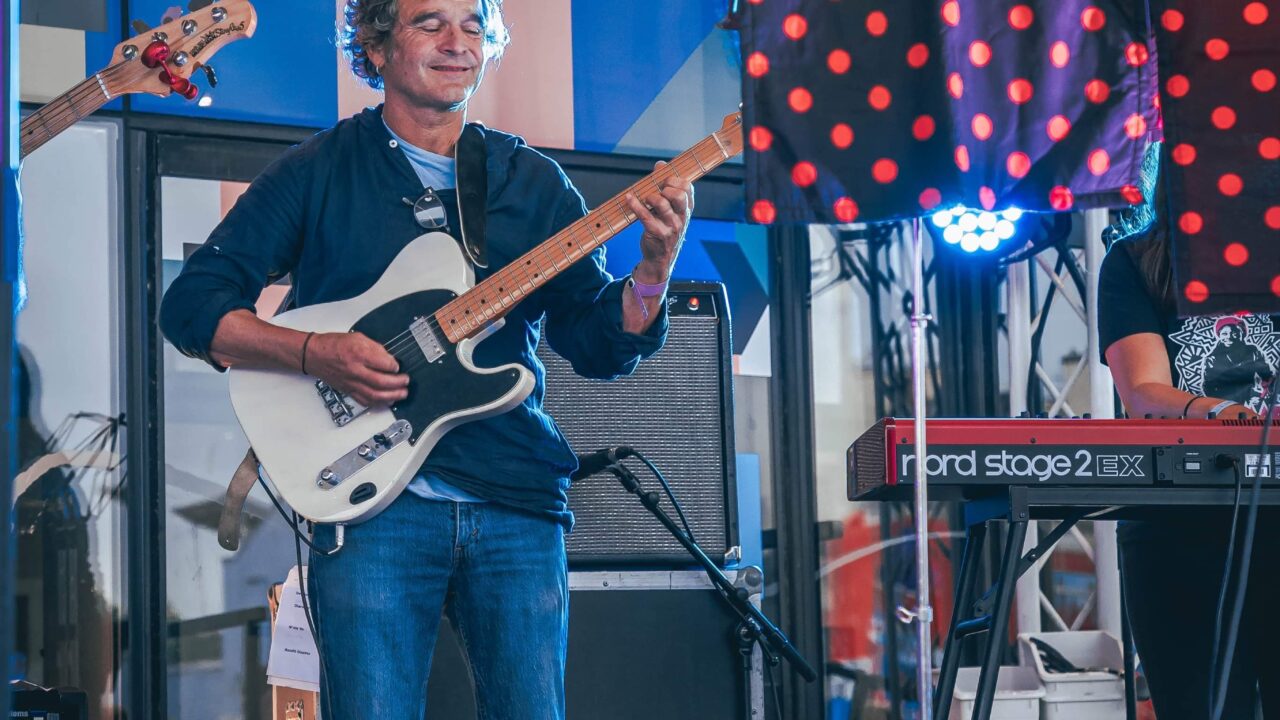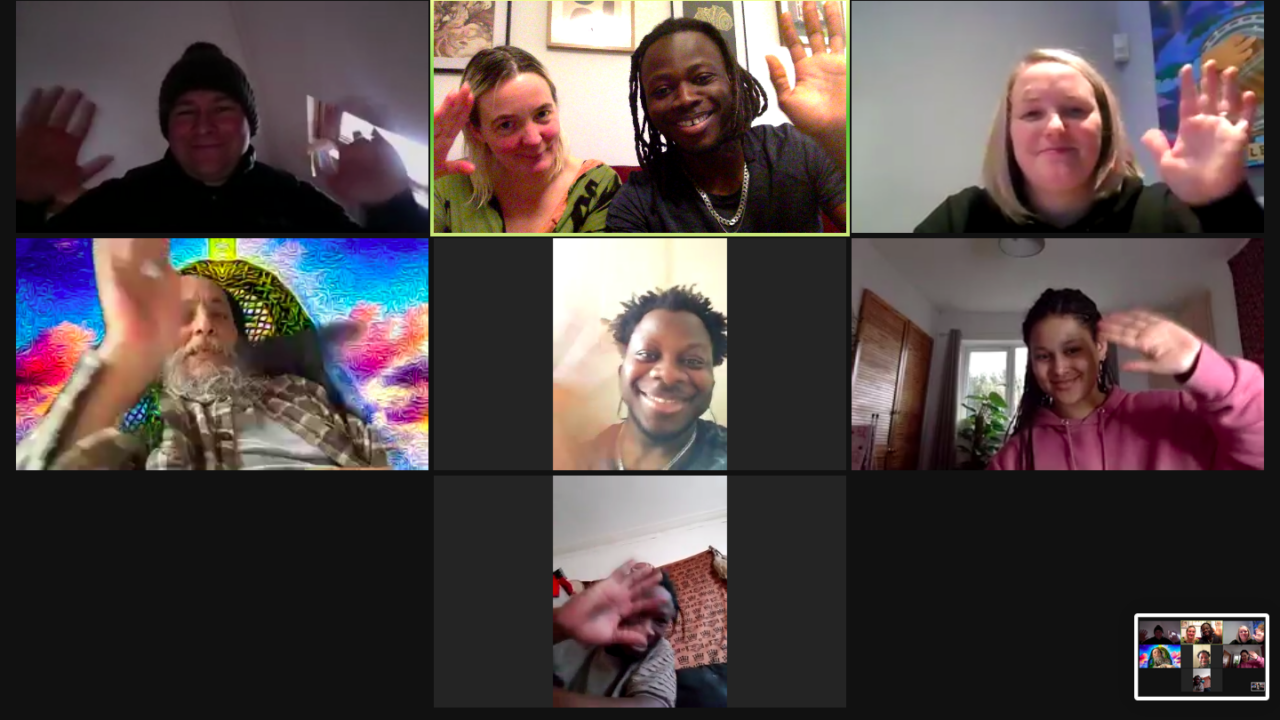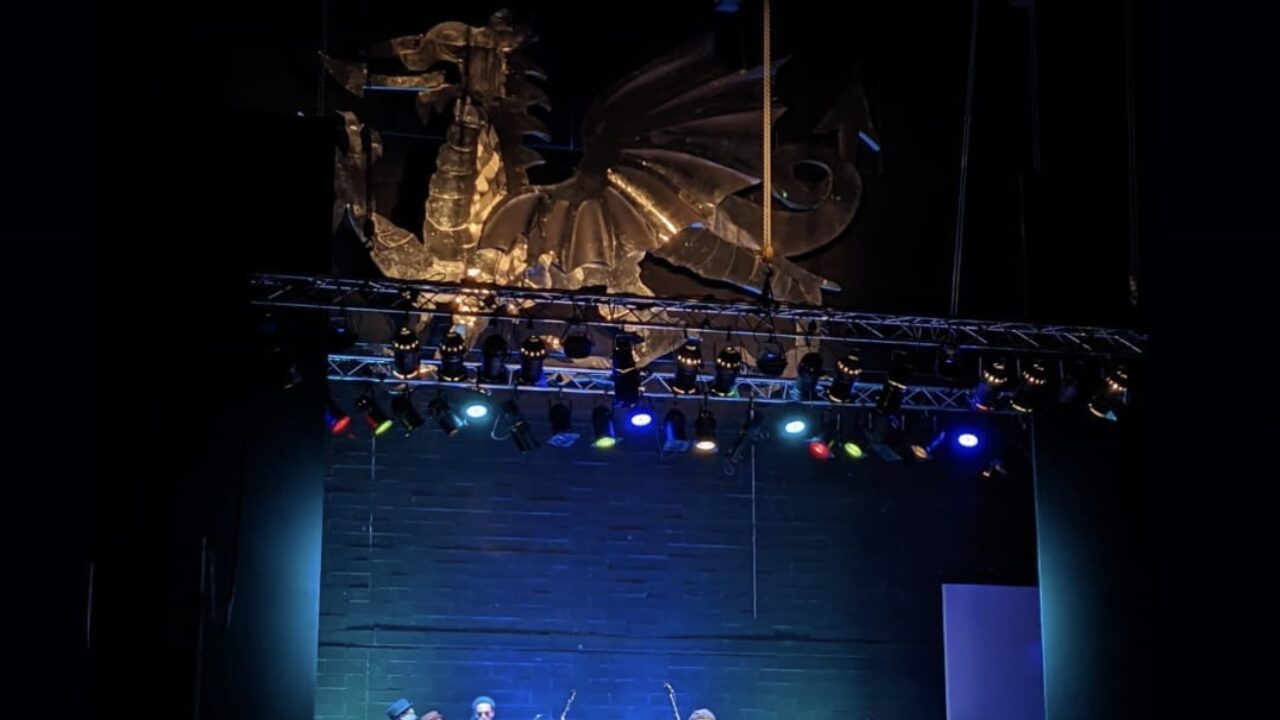‘Planting the Seeds’ was an Arts Council of Wales Connect&Flourish (C&F) development phase project that ran February-September 2021, which aimed to empower African artists based in Wales in their career development, by promoting & sharing their work and cultural traditions with diverse communities across Wales. The core partnership was made up of The Successors of the Mandingue (hosts), Neuadd Ogwen, Butetown Arts and Culture Association, Oumar Almamy Camara, and Association Kobenawati.
The collective’s objectives were the creation of meaningful employment opportunities for African artists in their specialist art forms, bringing together interested artists to collaborate on music/dance projects that enable greater cross-cultural understanding, and facilitating cultural education and exchange through community engagement.
The project explored barriers and identified issues facing African artists and facilitated opportunities for partnership working. In this process we gathered a wealth of evidence via online conversations, focus groups, and surveys (see below project details and findings). After the initial scoping work, interested artists were invited to participate in experimental workshops and mini-projects to pilot some initial collaborations and fusion work.
By creating networks of artists in Wales, the UK, Europe and the African continent we hope to enable future collaborations, fusions, and platforms that nurture talent and innovation within the diaspora, and to engage diverse audiences in Wales. The project successfully reached out to a wide range of artists, venues, and communities within Wales (and beyond) with some exciting results.
Our ambitious closing experiment was a Wales-France-Guinea digital collaboration undertaken in September 2021 featuring seven artists in Wales, nine artists in France, and seven artists in Guinea that resulted in the stunning track and video above. The song was started by a group in Cardiff that included two West African musicians, a drummer with a London gospel background, and a ska guitarist. The recording was then sent to Toulouse, Normandy, and Angoulême in France to add a mixture of traditional and modern instrumentation and singing, before finally travelling to Conakry, Guinea, for the lead and choral vocals. The patchwork of recordings were then sent back to Wales to create a rich fusion of old and new by skilled audio and visual technicians based in Cardiff under the guidance of the project’s Artistic Director, N’famady Kouyaté.
Other project initiatives included participatory drumming, singing, and dance workshops that provided mentoring and shadowing opportunities for new tutors. Workshops also arose from some of the needs and ideas expressed during the initial project conversations and focus groups. These included a successful women’s dance workshop – for women, led by women, with music created by women. Our teacher was Aida Diop from Senegal (now resident in Swansea), with music provided by Djeliguinet et ses Enfants (an all-woman group in Guinea). The group recorded the Yankadi rhythm (on Aida’s request), especially for the workshop with the accompanying video for participants. Attendees came from Women Connect First’s community network, with the workshop being held at South Riverside Community Centre.
Artist workshops included fusion experiments with groups of musicians in Cardiff and Bristol. These resulted in two groups performing in North Wales in July. The first was an all-African fusion involving musicians from different West African countries including Guinea, The Gambia, Côte D’Ivoire, and Burkina Faso (all now living in the UK) – bringing traditional folkloric instrumentation to a rural Welsh audience in Bethesda, and to Y Galeri in Caernarfon.
The second group brought together Wales based pop, funk, reggae, and jazz musicians together with West African musicians to create an Afro-Welsh fusion that got everyone in Neuadd Ogwen on their feet!
The project workshops also invited further Wales based musicians to collaborate and present at the first post-lockdown Community Night in the Wales Millennium Centre’s Donald Gordon Theatre. This fusion ensemble was complete with two singers from North Wales and a professional horn section performing new interpretations of West African songs.
Further ideas generated during the initial project conversation were tested during or Butetown Carnival, which included a collaboration with community wind & brass band Wonderbrass and contemporary dance practitioner Matthew Gough.
A smaller more intimate collaboration brought together three African traditions (West and Central) in the form of a tradi-modern acoustic trio of kora (The Gambia), bass (Cameroon), and balafon (Guinea). The result of which were so beautiful that a track, ‘Bannilay’, was recorded.
Other opportunities supported by the project included:
- Inviting a disabled West African artist from London as a positive role model to an inclusion project working with disabled young people in Ely, Cardiff. The artist also gained valuable experience in leading a djembe drumming workshop with the support and mentorship of another experienced facilitator.
- A dance workshop with live drumming at the Wales Millennium Centre for refugees and asylum seekers in partnership with Oasis One World Choir, bringing together West African drummers from three different countries providing musical support (all the artists had lived experience of visa barriers and one had expressed a particular interest in working with migrants).
- An open access dance workshop with live drumming in Bute Park (in partnership with Cardiff Council) as a warm-up for Butetown Carnival. This was enthusiastically welcomed, attracting a wide range of participants who were very much first-timers to West African dance.
PROJECT DETAIL
The project facilitated conversations and/or workshops with 133 freelance artists of whom 56 were based in Wales, 21 in the wider UK, 11 in Europe, 42 in West Africa (Guinea, Senegal, and The Gambia), and 3 in the Americas (Canada and Brazil) representing diverse art forms including music, dance, film, visual arts, circus, theatre, and photography. Participants within the UK hailed from all over the globe (including Wales, Scotland, England, USA, Guinea, Nigeria, Burkina Faso, Barbados, Poland, Ghana, Guinea Bissau, India, Côte d’Ivoire, The Gambia, St Kitts, Cameroon, Morocco, Nigeria, Iran, and Senegal).
In addition freelance artists, we engaged with community groups in a series of focus groups and online surveys. 57 individuals participated in focus group activities – these included groups drawn from community music, Muslim women, members of the Deaf community, refugees & asylum seekers, and community arts. A further 60 people participated in dance and percussion workshops supported by the project. Neuadd Ogwen also managed two surveys for the project – the first aimed at audiences/participants/general public, the second targeting venues/promoters/events/organisations. The general survey elicited 142 individual responses from across Wales, while the professional survey garnered 17 responses. The results were overwhelmingly supportive.
Original aims
· To build bridges to support isolated African artists towards integration within the Welsh arts scene
· Raise the bar in terms of artistic performance and delivery of activities through collaboration
· Co-create a proposal that outlines a potential two-year programme of high-quality collaborative artistic projects with each having performative and community engagement elements
· Engage, promote and develop local, national, and international artists and partner organisations to spotlight African influenced music and talent in Wales
· Share culturally rich African traditions
· Engage artists unaccustomed to publicly funded projects
· Create new and exciting fusion work
· Share the experience of diverse partners
· Showcase amazing talent
· Present positive Black role models
· Engage communities and individuals who have not had access to this work previously
· Create sustainable networks of support for artists.
Despite being ambitious, we can confidently say that we were able to deliver against each of the aims above during the course of the development phase project, which we now hope to progress further in 2022/23.
Project Research Findings
Focus groups, individual conversations, and surveys were undertaken with a wide range of artists, organisations, and community groups.
The following barriers were identified:
· Lack of access to & representation of African artists regarding cultural and artistic events and festivals in Wales
· For international artists there were issues of travel, visas, costs, and limited opportunities (several had experiences of visa applications being rejected and of exploitative agencies taking advantage of artists wanting to perform internationally)
· Many African artists had worked with Western musicians – recording for other people’s tracks etc but not full/true collaborations
· In the UK, funds, transport, Covid regulations, and social distancing were all concerns
· Within the UK artists live far apart – there was a lack of clusters of African artists that could readily support each other artistically
· Within African events/festivals there is a lack of pan-African representation – e.g. a neglect of North African artists and traditions
· A lack of access to the traditions and cultures of home countries/family heritage
· Fear that skills and traditions are dying out and might be lost forever (e.g. the Somali lyre)
· Children access music lessons in school (violin, piano etc) but have little access to their own cultures
· Activities often lack cultural sensitivity (e.g. very few women only classes/workshops)
· A lack of information and professional development opportunities for artists
· Live music in the UK being dominated by the night-time economy – i.e. not family friendly; often alcohol driven events
· For audiences there was lack of opportunity to see live performances of international acts (this was reported by those in both rural and urban areas in Wales)
· Fear of cultural appropriation (regarding participatory arts)
· For venues the primary barriers were lack of knowledge, contacts, availability, costs, administration, understanding visa applications and sponsoring, size of audiences in rural areas, and marketing (a lack of materials)
· Deaf access – facilitating access to communication is not enough, there is a general lack of Deaf awareness and appropriate adaption to meet the needs of Deaf individuals (see BSL page for full recommendations)
· Lack of opportunities for musical cultures to meet
· Restrictions of time, space, and finance that inhibit action towards removing the barriers listed
· Loss of culture – even in West Africa the younger generation are not taking up traditional instruments – opting for short lived genres e.g. rap music, that do not lead to sustainable careers
· Having to balance day jobs with artistic activity
· Lack of support i.e. no network to call upon
Significant opportunities were also identified:
· A sheer wealth of talent
· Diverse specialist art forms – music, dance, circus
· Enthusiasm for collaboration projects
· Ideas regarding fusions – combining modern and traditional folkloric instrumentation
· Interest in working with disability groups and migrants as role models
· Collaboration across art forms – visual arts, theatre, contemporary dance
· Flexibility and versatility – teaching, creating, performing
· Expertise and experience
· Public interest – demand in rural and urban areas across Wales
· A desire to see and host international acts
· Potential to work with local community groups and bands
· Venues & organisations in Wales with a keen interest identified
· Community partnerships welcomed
· Community representatives keen to be active participants
· Interest in African film, theatre, language, costume, dress, music, culture, current affairs/issues/educational presentations, literature, and how the traditional has influenced modern art forms
· Demand for masterclasses
· The potential to create a network/circuit of venues and events with a genuine interest and desire to programme this work
· New partnership development with arts organisations in Wales
· An emerging network of artists in the UK and beyond – with a core base in Wales
· Excitement after participation in mini-projects
· The potential for stages/tents at established events
· The existence of community groups that could feed into a festival
· Ara Deg, Butetown Carnival, and Pride Cymru festivals falling at a similar time in addition to other significant events
· Potential for workshops – the telling of Artists’ stories and of professional exchange
· Demand for participatory artistic activities included workshops in djembe, song, language, cuisine, dance, doundoun, learning about traditions, creating fusions, art, history, costume, stalls, mask making, and fabric printing
· Further interest expressed in seeing documentary films, live music, traditional instruments, cultural exchange, commissioning cross cultural composition, street food, talks, poetry, literature, theatre, exhibition, textiles, storytelling, high quality performances, discussion of socio-economic-political and environmental issues, crafts, different African traditions (keywords were: listen, experience, purchase, make, share, play, meet, learn, family friendly)
· 21 potential venues/events expressing an interest in being part of a circuit
· Practical solutions to becoming more inclusive and accessible
We are now in the process of seeking further funding to build on this work informed by the findings above. For now, we give thanks to the Arts Council of Wales for supporting this development work and to all our project participants and partners.

